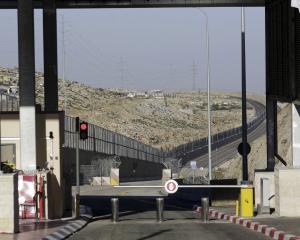I had a great aunt, a cheerful old bird, who led a spinster's life with her unmarried sister. The pair kicked about in a large house in Wellington's Kilburnie, where they let out rooms.
Auntie Cal enjoyed a Scotch, was generous to a fault, and played a sharp hand of canasta. To a young boy she was fun - but unknowable, on the simple grounds she was an ancient.
I didn't realise this old trout was the family's war hero. I had no idea of the horror she'd lived through.
It being the 100th anniversary of the First World Lunacy, many families have looked through their old photographs to remember relatives who went to the war.
Ours too. In a round of emails, memories, furphies, and old pictures, we pieced together some of her story - helped especially by my researcher sister, Hilary.
Caroline ''Cal'' Wise's moments of magnificence were as a New Zealand army nurse on the Western Front - one of the Kiwi girls confronting the dreadful wounds of the men stretchered back to the makeshift NZ hospitals.
In 1916 she'd have had some inkling she was sailing off to hell, because when she left Wellington on the NZ hospital ship Maheno, it was post-Gallipoli.
Maheno was a small passenger ship refitted with eight wards and two operating theatres, and this was its second mission. Ten nurses from the first were already dead, torpedoed on a troop carrier near the Dardanelles.
Auntie Cal left the hospital ship in Egypt where there were still Gallipoli wounded, and new casualties from the Sinai and Palestine campaign.
It was hot, many of the ''wards'' were tents, and dysentery and typhoid were deadly jokers in the pack. A colleague nursing on the nearby island of Lemnos said there were so many bodies from these diseases ''it feels like the Great Plague of London, but without the bells''.
Our troops moved on to Europe and the Western Front, and the nurses followed to set up the curiously titled ''Stationary Hospitals''. These surprisingly serviceable huts and tents were close to the slaughter of Passchendaele and the Somme. Sometimes they were shelled.
When there was night bombing nearby, the nurses took to their trenches, in tin hats and pyjamas. Cal worked within a team of 40 nurses, doing their best for up to 1000 men at a time, many grotesquely injured, many dying.
''Stan'' Stanfield, a Wairarapa farmhand whose oral history is at the Alexander Turnbull library, said: ''Don't forget, we was all young, we didn't die easy. You don't die at once. You're not shot and killed stone dead. You were slow to die.''
A colleague of Cal's, Elsie Grey, wrote: ''It was terrible to see men wounded in the head - numbers of them became paralysed and many were minus arms and legs, or eyes.
For the first few days they were quite silly - lost their reason and some speechless. Oh it was quite ghastly and desperately busy - we just went on and on doing dressings, no hope of finishing. Crowds died of course.''
Shirley Millard - an English nurse nearby - found her fiance in hospital, his broken leg in bandages and his arm in a sling, She fell on him, crying: ''Oh darling, thank God you're not hurt.''
We can laugh, but it showed the nurse's ghastly norm.
They weren't just battling to save the soldiers' lives; it was also a fight to save their psyches. The sudden presence of a caring young woman gave relief and hope to a badly wounded soldier who'd spent months in the trenches.
The size of the butchery that Cal and her colleagues were presented with is hard to take in. Within earshot of their hospitals, half of the New Zealanders mired in the mud of the Western Front were being gunned down, blown up, or gassed - 35,000 wounded and 13,250 dead.
The day the madness ended, Auntie Cal was a patient herself, tired and hospitalised with bronchitis after suffering the Spanish 'flu which had swept the battlefields.
We never heard her speak about the war. There is no Caroline Wise diary. We don't know what she dreamed at nights. But we remember our Auntie Cal, and wish like hell we'd known her better.
John Lapsley is an Arrowtown writer.











